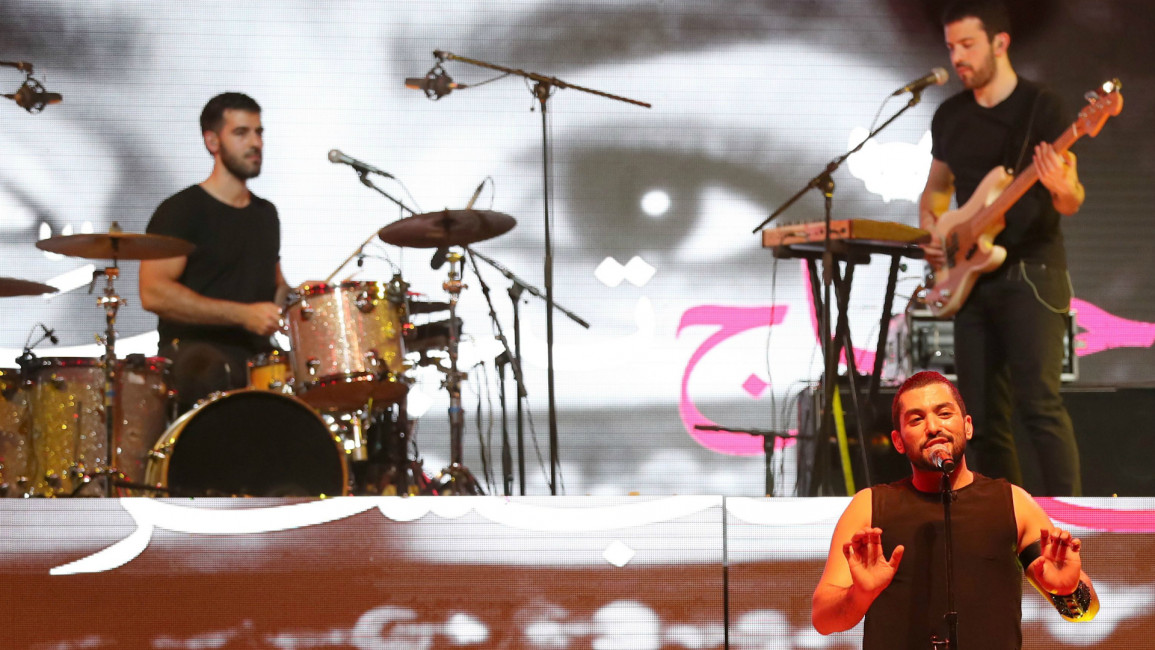'Project over': Mashrou' Leila lead singer Hamed Sinno announces Lebanese band's 'split'
The lead singer of Mashrou' Leila has said the Lebanese band's members have no plans to work together - an announcement that has shocked their fanbase worldwide.
"Until now, no … nobody's thinking of working together again for now," Hamed Sinno, singer of Mashrou' Leila ("Leila's Project") told the 'Sarde After Dinner' podcast.
— artemis stark (@CarpeDiemingDee) September 11, 2022
They did not explain the reason for the split. On their Instagram page, Sinno posted a story saying: "Super grateful for the deluge of support since last night. I'm not going to respond to DMs and posts, but I want you to know that I see you, and I feel cradled and loved."
The band had been reportedly finding it challenging to continue their music amid a clampdown on the LGBT+ community in the region.
Lead singer Sinno is openly gay, and the band has been banned from performing in a number of Arab countries due to their support for the LGBT+ community, and other issues considered taboo in the region.
Fans expressed their heartbreak over the news about the band, who led an indie music revolution in the region and are known for their support for progressive issues.
mashrou' Leila are splitting up?????????????????? NOOOOOOOOOOOOOOOOO
— namu (@jinhairclip) September 12, 2022
this is it then no more mashrou’ leila songs, ive honestly never felt more connected to an arab band i dont think there’ll ever be anything like them… very sad day for us
— jana ☭ (@veryreallybored) September 11, 2022
MASHROU’ LEILA DISBANDED??? HORRIBLE DAY FOR THE GAYS
— marauder (@mothp1lls) September 11, 2022
The band, founded in 2008, had seven initial members, including Sinno, Haig Papazian, Carl Gerges, Firas Abou Fakher, Andre Chedid, Omaya Malaeb, and Ibrahim Badr.
Since 2016, Mashrou' Leila has faced an effective ban on performing in Jordan, where officials described their music as containing "lyrics that do not comply with the nature of Jordanian society".
In 2019, they were barred from performing at the Byblos International Festival in Lebanon after a Facebook post many of the country’s Christian community deemed blasphemous and offensive.
Maronite leaders were successful in exerting enough pressure on the festival organisers to cancel Mashrou' Leila’s performance.


![President Pezeshkian has denounced Israel's attacks on Lebanon [Getty]](/sites/default/files/styles/image_684x385/public/2173482924.jpeg?h=a5f2f23a&itok=q3evVtko)



 Follow the Middle East's top stories in English at The New Arab on Google News
Follow the Middle East's top stories in English at The New Arab on Google News


